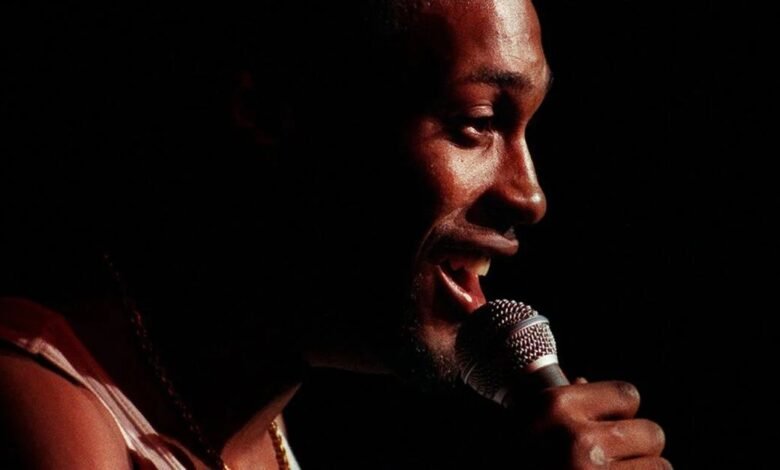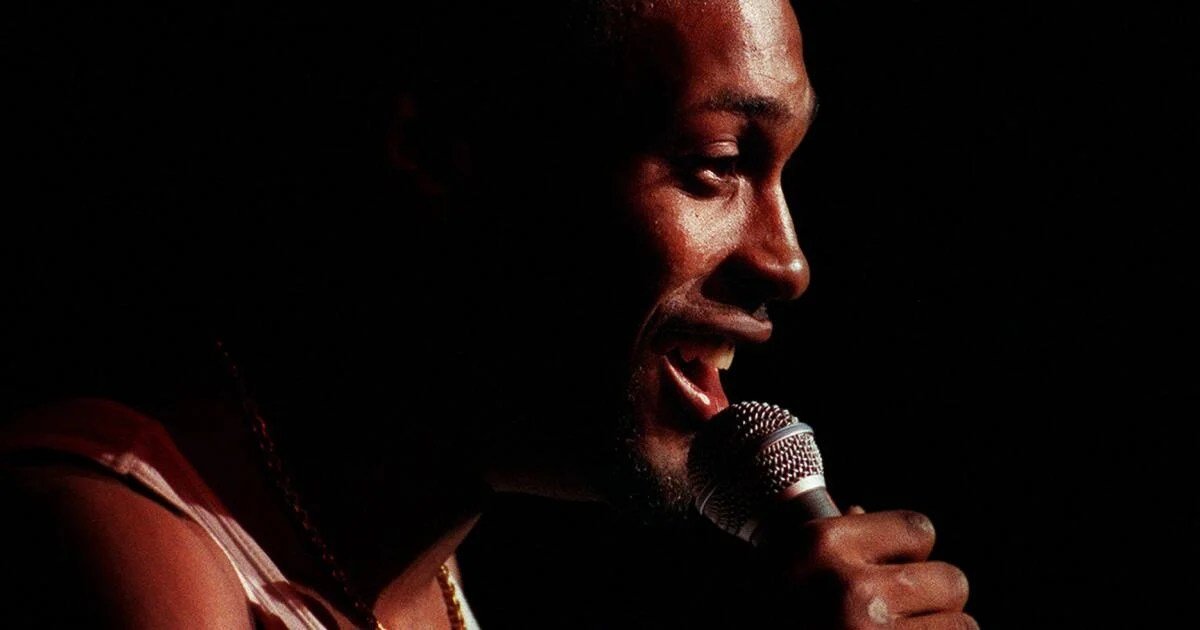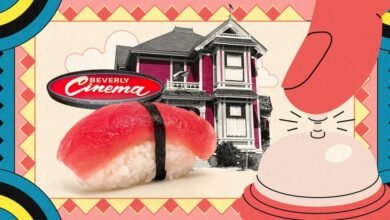D’Angelo Was Soul Music’s Bard Of Devotion

D’Angelo Was Soul Music’s Bard Of Devotion
“How does it feel?”
D’Angelo asks that question — worries it, caresses it, plumbs its unseen depths — no fewer than two dozen times in what might have been his signature hit.
A meticulous, slow-to-boil ballad from the R&B singer’s 2000 album “Voodoo,” “Untitled (How Does It Feel)” is basically a seduction in seven minutes: The song opens with D’Angelo asking a woman to come closer, which because the groove is so spare and his voice such a murmur, she can’t help but do. As the song gradually picks up steam, his singing gets grittier and the words graphic; he offers to take off her clothes and to “take the walls down” between them. Yet even with electric guitars and background vocals cascading around him, he continues checking in with his lover until the music cuts off abruptly as though somebody turned on the lights.
“How does it fe—,” we hear him sing, a man suspended in a state of eternal concern.
D’Angelo, who died Tuesday at 51made soul music for three decades in that tender and attentive spirit. His song “Brown Sugar” catalogs the pleasures of a partner’s body; “Really Love” contemplates the not-especially-sexy reality of long-term coupledom. In “Lady” he’s exhausted his ability to keep secret his relationship with a woman he knows “every guy in the parking lot” wants to steal from him.
“I’m tired of hiding what we feel,” he pleads, “I’m trying to come with the real.”
The Virginia native’s slim but hugely impactful discography — just three LPs and an assortment of live cuts and loosies — showcased the same loving commitment to the sensual possibilities of pure sound. Listen to his tightly harmonized vocals in “Send It On” or to the gorgeously murky electric piano in “One Mo’Gin” or to the knotty percussive crosstalk in “Sugah Daddy.”
In his music, D’Angelo fashioned intimate psychic spaces with infinite sonic detail.
Amid the digital luster of mid-’90s rap and R&B, the craftsmanship of his 1995 debut, “Brown Sugar,” marked him as an old soul — indeed as one of the handsome faces of what became known as neo-soul: a marriage of ’70s-style themes and song structures with the attitude and rhythmic swagger of hip-hop. The genre also encompassed the likes of Maxwell, Jill Scott, Erykah Badu and Angie Stone, about whom D’Angelo was said to have written songs on “Brown Sugar” and with whom he had the first of his three children. (Stone died in a car accident in March.)
D’Angelo didn’t quite embrace the neo-soul label: “I do Black music,” he once said. Yet there was no denying his deep connection to soul-music tradition; among the tunes he covered were Smokey Robinson’s “Cruisin’” and Roberta Flack’s “Feel Like Makin’ Love.”
“Brown Sugar,” which went platinum, made D’Angelo a star — cultural capital he spent in assembling a group called the Soulquarians to record “Voodoo” at a supremely unhurried pace that allowed the music to bloom with intricacies à la Prince or Stevie Wonder.
“I was just trying to create, taking my time to make the best music possible,” D’Angelo said in an interview with The Times in 2000.
Earlier this year, the veteran R&B musician Raphael Saadiq told me about stumbling into the sessions for the album at New York’s Electric Lady Studios — D’Angelo’s other collaborators included drummer Questlove, bassist Pino Palladino and trumpeter Roy Hargrove — as he walked through Greenwich Village one summer day.
“I wanted to get something to smoke on,” Saadiq recalled, so he knocked on the studio’s door only to discover D’Angelo at work inside. “I’m like, ‘You got a joint?’ He’s like, ‘Yeah, I got a joint — but come in, let’s write a song!’” The two came up with “Untitled (How Does It Feel),” which Saadiq said ends the way it does because “the tape ran out as we were playing.”
In the 2000 Times interview, D’Angelo said he “always thought ‘Brown Sugar’ was a little overproduced” and that with “Voodoo” he “wasn’t too concerned with things sounding too perfect or neat or clean.” The result — funky, richly textured, a little jagged at the edges — set a template later embraced by admirers such as Frank Ocean, SZA and Steve Lacy.
Yet for D’Angelo, the success of “Untitled,” which hit No. 2 on Billboard’s R&B chart and won a Grammy for male R&B vocal performance, was complicated by the sensation that was its music video. The clip presented him as a naked sex object; D’Angelo’s discomfort with that role pushed him to withdraw from the spotlight just as his career was exploding.
In the years that followed he struggled with addiction, suffered medical issues and ran into trouble with the law. But he also seemed dismayed by what was going on in the world. In 2014 he returned to music with “Black Messiah,” an album shadowed by the dark specter of racialized police violence: “All we wanted was a chance to talk / ’Stead we only got outlined in chalk,” he sings in “The Charade,” which came out in the wake of the killing of Michael Brown in Ferguson, Mo.
Even at its bleakest, though, D’Angelo’s music found a kind of clarity — erotic, moral, political — in the rituals of devotion. “Just as long as there is time, I will never leave your side,” he sang in “Betray My Heart” — one attempt to take a wall down with a feeling.
Disclaimer: This news article has been republished exactly as it appeared on its original source, without any modification.
We do not take any responsibility for its content, which remains solely the responsibility of the original publisher.
Disclaimer: This news article has been republished exactly as it appeared on its original source, without any modification.
We do not take any responsibility for its content, which remains solely the responsibility of the original publisher.
Author: uaetodaynews
Published on: 2025-10-15 16:44:00
Source: uaetodaynews.com





